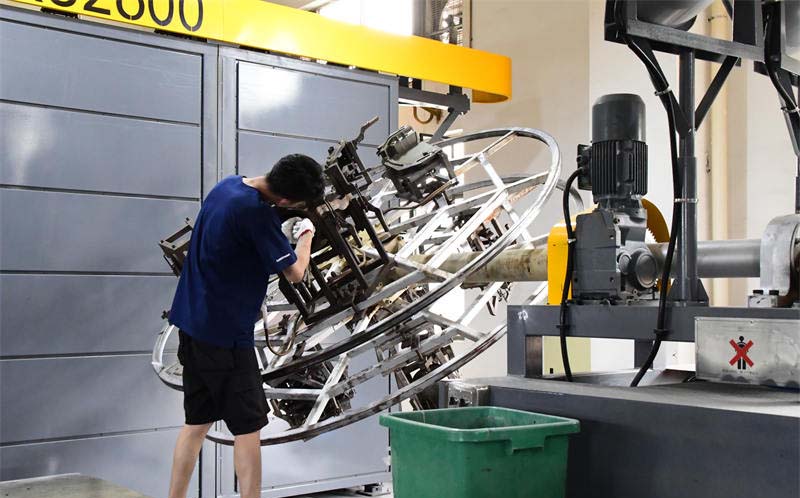What types of Tooling are Used in Rotational Molding?
 Aug 16,2022
Aug 16,2022

What types of Tooling are Used in Rotational Molding?
Rotational molding tooling is often made from cast aluminum, CNC machined aluminum, electroformed & fabricated sheet metal. Each type of tooling has its own benefits and product design parameters.
Cast Aluminium Tooling
The most common type of tooling used in rotational molding industry is cast aluminium. The majority of the rotationally molded products made today are produced from cast aluminum molds because of the following features.
Heat transfer
Cast aluminum has good heat transfer characteristic, Molds are lightweight to dissipate heat well, making them ideal for repeated cycles through rotational molding ovens.
Malleability
The malleability of the alloy allows for ease in texturing and/or polishing the molds modification after they have been put into production to accommodate slight changes to the parts design. I also offer design flexibility for multiple piece molds with undercuts
Product appearance
Cast aluminuium molds can produce products with complex shapes, curves and intricate detail, and offers a wide range of surface finishes/textures
Low cost
Cast Tooling is usually less inexpensive than CNC machined or electro-formed tooling, and can be made in six-to-eight weeks depending on the complexity of the design.
Sheet Steel Tooling
Fabricated sheet metal tooling is commonly used on large parts that don’t have complex design geometry. Steel tools are less expensive kind of rotational molding tooling. Fabricated sheet metal tools are fabricated by welding sheet steel sections together. The welds are then ground and polished to avoid visible seams on the finished product. A typical steel tooling lead time is around 4-6 weeks depending on the complexity of the design.
CNC Aluminium Tooling
CNC aluminium tools are machined from solid blocks of aluminium, making this form of toolmaking the most expensive by far. This type of rotational mold can be machined to very tight tolerances with a very high level of accuracy and have the same advantages as the cast aluminum molds. The surface finish and seam lines are better than on a steel or cast tool, and lead times can be quick due to the speed that the aluminium can be cut. The pricing depends on the size and complexity of what has to be machined.

Light Venus provides precise but cost-effective tooling for custom rotomolded products. With our extensive experience in tooling design, we can control tooling costs while achieving exact tolerances. Feel free to contact us if you are looking for custom rotational molding service, we are right here to be of any assistance.
 Tel: 0086-13632687993
Tel: 0086-13632687993  Email: roto@lightvenus.com
Email: roto@lightvenus.com

 Home
Home What Types of Polyethylene are Commonly Used for Rotational Molding?
What Types of Polyethylene are Commonly Used for Rotational Molding?  You May Also Like
You May Also Like



 Tel
Tel
 Email
Email
 Address
Address








